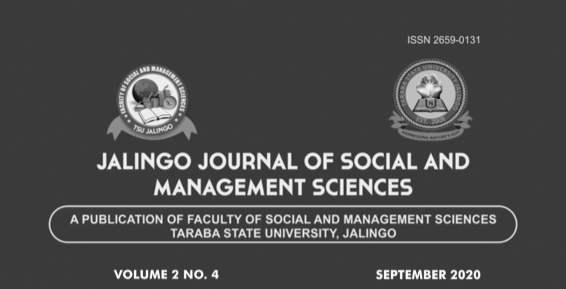Impact of Covid-19 on Informal Sector and Livelihood Sustainability in Nigeria: A Conceptual Approach
Keywords:
Covid-19 pandemic, Employment, Livelihood sustainability, Nigeria, Observational method, Rapid response surveyAbstract
The covid-19 pandemic is a public health crisis that has continue to spread across continents with no definite treatment or vaccine, but requires an extraordinary set of policy responses. A greater part of the world economy is being shut down for public health reasons related to covid-19 while none of the existing economic programmes in Nigeria are adequate to tackle this menace. In lieu of that, this study evaluates the impact of covid-19 on informal sector and livelihood sustainability in Nigeria. The study adopted a method based on scenarios and make use of rapid response survey to elicit additional information. This is due to the difficulty of quantifying the real impact as a result of the uncertainty and the rapidly evolving nature of the pandemic. The findings of the study revealed that many businesses in all sectors of the economy have been affected by the social distancing and lockdown measures thereby inflicting more economic hardship and decreased social welfare in addition to loss of learning among the students. When a government forces a business to close for public health reasons, same government should absorb the debt, but not the business. Therefore, government should provide massive loans to business with generous interest rate and payback periods in addition to palliatives. Furthermore, international monetary agencies should provide a debt relief services to enable government focus on protecting vulnerable population and strengthening palliative measures.

Downloads
Published
Issue
Section
License
Copyright (c) 2023 JALINGO JOURNAL OF SOCIAL AND MANAGEMENT SCIENCES

This work is licensed under a Creative Commons Attribution-NonCommercial 4.0 International License.
